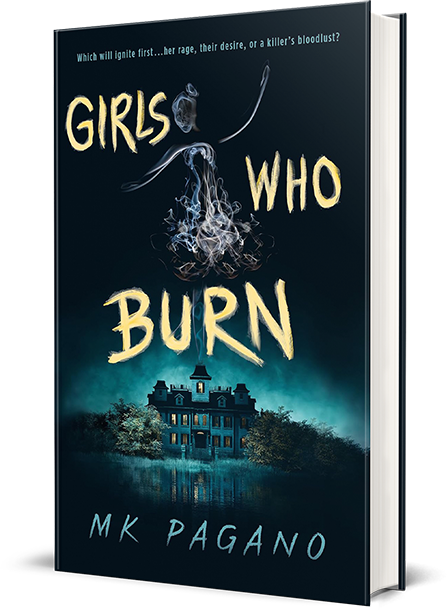Learning from the Masters: Voice
So I’ve written a lot about what we can learn from the masterful writers who’ve come before us, focusing mainly on the first 250 words of the manuscript. Today I want to focus on something else: voice.
Voice is a non-negotiable, crucial element of your novel, as it dictates the way the reader will experience the story. Is your narrator straightforward? Flowery? Sarcastic? Serious? Old? Young? Formal? Does s/he speak in full sentences? Fragments? Is s/he telling this story now? From a long time away?
There’s no right or wrong to this; voice is a personal preference. All that matters is that you stay consistent. (Of course, there are exceptions–if your novel has two or more narrators, for example, you should have two different voices). But voice is especially crucial if you’re writing YA. Your audience has expectations–and you want to meet those. This doesn’t mean the voice of your novel needs to sound like an angsty teen the entire way through–I’ll give an example of a YA novel that doesn’t do this at all next week–but it does mean your voice has to appeal to teenagers.
The first master I want to talk about is Tim Tharp, who wrote the absolutely spectacular The Spectacular Now. This is the story of Sutter Keely, a high school senior without particularly lofty ambitions who’s good at partying and living in the moment, and at first it seems not much else. But Sutter is constantly surprising you with his raw emotion and depth. I’ve heard people complain that this book is just a modern-day Catcher in the Rye, to which I respond, what’s the matter with that? I loved the Catcher in the Rye, and I loved this book, but even if you didn’t, there’s a lot to be learned from Tharp’s prose:
So, it’s a little before ten a.m., and I’m just starting to get a good buzz going. Theoretically, I should be in Algebra II, but in reality I’m cruising over to my beautiful fat girlfriend Cassidy’s house. She ditched school to get her hair cut and needs a ride because her parents confiscated her car keys. Which I guess is a little ironic considering that they’re punishing her for ditching school with me last week.
Anyway, I have this sweet February morning stretching out in front of me, and I’m like, Who needs algebra? So what if I’m supposed to be trying to boost the old grades up before I graduate in May? I’m not one of these kids who’s had their college plans set in stone since they were about five. I don’t even know when the application deadlines are. Besides, it’s not like my education is some kind of priority with my parents. They quit keeping track of my future when they divorced, and that was back in the Precambrian Era. The way I figure it, the community college will always take me. And who says I need college anyway? What’s the point?
I love Sutter’s voice. It’s teenagery, conversational, it’s realistic–but it’s also elegant. Take this passage:
But with this February sun, see, the light’s absolutely pure and makes the colors of the sky and the tree limbs and the bricks on these suburban houses so clean that just looking at them is like inhaling purified air. The colors flow into your lungs, into your bloodstream. You are the colors.
Really beautiful right? But then it’s followed by this:
I pull into a convenience store for a big 7UP, and there’s this kid standing out front by the pay phone. A very real-looking kid, probably only about six years old–just wearing a hoodie and jeans, his hair sticking out every which way. Not one of these styling little kids you see in their brand-name outfits and their TV show haircuts, like they’re some kind of miniature cock daddy.
I love the “very real-looking kid”–such a perfect description (and SO Holden Caulfield). Sutter really has a way of speaking so that you can tell immediately he’s a teenage boy, but that there’s way more to him than ditching school and not caring about college. The novel continues on in this voice as we navigate the end of Sutter’s senior year and it’s lovely and heartbreaking and so, so real.
But if you didn’t like this voice? You probably wouldn’t keep reading. And that’s fine–that’s why we have so many books, after all. To each their own. What matters is that the beginning of the story gives us a feeling for the voice in which this story is going to be told, and that the author upholds our expectations by staying in this voice throughout.
Beginner writers often need to find their own voice, experimenting with first and third person, formal and informal prose, and that’s also fine–desirable, actually. In a writing class once, the teacher had us rewrite our short stories mimicking a particular author’s voice. I chose Salinger, naturally, and it was actually a ton of fun, and a total departure from the way I usually wrote. If you’re not set on your voice set, I highly recommend this exercise!
You can also experiment with writing different stories in different voices. My first novel was third-person, past-tense, multiple POV, and a little more formal than most YA (actually the most consistent feedback I got while querying was “the voice wasn’t quite right”. But more on that later.) So for my second novel, I’m writing in first person, present tense, sentence-fragment-filled teenagery prose, which I wasn’t sure I’d be good at–but I actually really love it.
Ultimately, you have to decide what feels natural and organic for you and your story.
For more lessons on voice from those master writers, come back next Thursday!
Image taken by me



Although I’m more of a poet than a novelist, voice is definitely something important when it comes to writing narratives. I admit, it’s hard to stay consistent with a character’s perspective if your mood changes on a daily basis. Good post!
Yes, it’s so hard to stay consistent sometimes, depending on your mood, or what book you just read, haha. Thanks!
[…] last week I said I wanted to talk about something super-important in novel-writing: voice. This week […]
[…] written about voice in YA contemporary (twice), I’ve written about voice in YA historical, and today I’m going to talk about […]